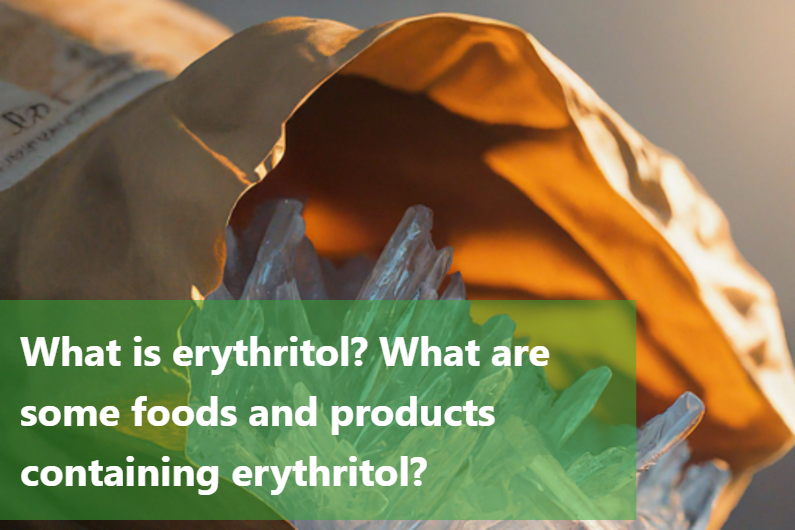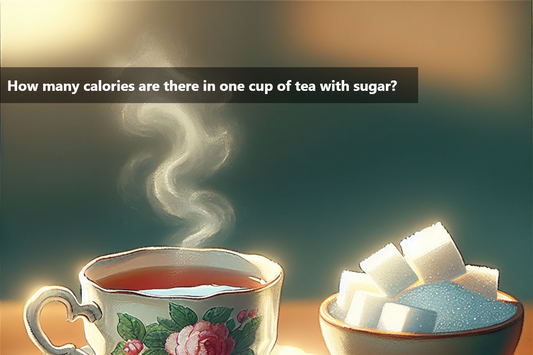Erythritol is a natural sweetener that is becoming increasingly popular due to its low-calorie content and tooth-friendly properties. It is a sugar alcohol that occurs naturally in some fruits and fermented foods.
Erythritol is also commonly found in various low-calorie and sugar-free food products, serving as a substitute for sugar. This sweetener is distinct from artificial sweeteners and is often used by individuals who are looking to reduce their sugar intake without compromising on sweetness.
It provides a sweet taste without the harmful effects of sugar, making it a favorable choice for health-conscious consumers.
Is Erythritol Natural?
Erythritol is a natural sweetener found in different fruits and fermented foods.
It is also made industrially by fermenting glucose, which comes from corn. The extraction process involves filtering and turning the fermented mixture into erythritol crystals.
Unlike fake sweeteners, erythritol is seen as natural because it occurs in nature and is also made in small amounts by the human body during metabolism.
One great thing about erythritol is that it has zero calories and does not increase blood sugar or insulin levels, making it a good choice for people with diabetes or those on a low-calorie diet.
Also, erythritol does not cause tooth decay, making it a better option than fake sweeteners that may harm dental health.
Foods and Products Containing Erythritol
Food
Erythritol is a versatile sweetener widely used in a range of food items. It is commonly found in sugar-free candies, chewing gum, and beverages, providing a delightful sweetness without the added calories of sugar. In the realm of sugar-free candies, erythritol can be spotted in various types, from fruity gummy candies to delectable chocolates. Its ability to impart sweetness without promoting tooth decay makes it an appealing choice for manufacturers of sugar-free confectionery. Additionally, chewing gum, especially the sugar-free variety, frequently incorporates erythritol as a key ingredient. This inclusion not only serves as a source of sweetness but also helps in maintaining the texture of the gum.
Products
Moreover, erythritol appears in an array of products including soft drinks, flavored water, and sports drinks. These products utilize erythritol to achieve a pleasing taste without the need for added sugars or artificial sweeteners. The versatility of erythritol in these products makes it a popular choice for individuals seeking to reduce their sugar intake without sacrificing flavor.
Erythritol as a Sugar Substitute
- Erythritol is a great sugar substitute for baking and cooking because it has special properties. This natural sweetener is taken from fruits like melons and grapes, making it a healthier choice than artificial sweeteners. Erythritol doesn't raise blood sugar levels like sugar does, so it's good for people with diabetes or those who want to manage their sugar intake. It also doesn't cause tooth decay, which is great for dental health.
- When baking, you can use erythritol just like sugar, so it's really easy to use in recipes. It dissolves easily and gives baked goods a moist texture without adding extra calories. In cooking, erythritol gives the sweetness you need without the guilt. You can sprinkle it over fruits, add it to drinks, or use it in sauces and marinades.
- Erythritol doesn't affect blood sugar levels much, so it's popular for people following a low-carb or ketogenic lifestyle. Since the body gets rid of erythritol without changing it, it doesn't affect blood sugar levels. This makes it safe for people monitoring their glucose levels.
- Unlike sugar, erythritol doesn't cause tooth decay. Bacteria in the mouth don't break it down, so it doesn't create acids that lead to cavities. This makes it a tooth-friendly alternative to sugar and other sweeteners.
- In summary, erythritol is an excellent sugar substitute because it tastes and feels like sugar, has a minimal effect on blood sugar levels, and is good for dental health. Whether you want to cut down on sugar or keep your blood sugar in check, erythritol is a versatile and healthy choice for all your sweetening needs.
Dangers of Erythritol:
Erythritol is generally considered safe for consumption, but excessive consumption can lead to potential health concerns. One of the primary dangers associated with erythritol is its laxative effect. When consumed in large quantities, erythritol can cause digestive issues such as bloating, gas, and diarrhea, especially in individuals who are sensitive to sugar alcohol.
Furthermore, some research suggests that erythritol may have negative effects on gut health by altering the balance of gut bacteria. This can potentially lead to digestive disturbances and discomfort.
Although erythritol is low in calories and does not raise blood sugar levels, it's essential to consume it in moderation to avoid adverse effects. People with existing digestive disorders or conditions such as irritable bowel syndrome (IBS) should be particularly cautious when consuming erythritol.
As with any food additive, it's important to be mindful of the potential dangers and monitor your intake to prevent any negative health effects. Always consult with a healthcare professional if you have any concerns about the consumption of erythritol or any other sweetener.
To conclude:
In conclusion, erythritol emerges as a natural sweetener with manifold applications in the food industry. Its origin as a sugar alcohol through natural processes positions it as a favorable alternative to artificial sweeteners. The widespread presence of erythritol in sugar-free candies, chewing gum, and beverages signifies its prevalence in consumer products. Moreover, its promising potential as a sugar substitute in baking and cooking not only caters to dietary preferences but also reflects positively on blood sugar levels and dental health.
Overall, erythritol's natural origin, varied presence in food items, and role as a sugar substitute underscore its relevance in promoting healthier dietary choices.
FAQs about Erythritol:
-
What is erythritol and how is it made?
Erythritol is a sugar alcohol that is naturally found in some fruits and fermented foods. It can also be made from glucose by a process called fermentation.
-
Is erythritol safe to consume?
Yes, erythritol is generally recognized as safe (GRAS) by the FDA. It is well-tolerated by most people and doesn't raise blood sugar or insulin levels.
-
Does erythritol have any calories?
Erythritol is a low-calorie sweetener and contains about 0.24 calories per gram, which is about 6% of the calories found in an equal amount of sugar.
-
Can erythritol cause digestive issues?
While erythritol is well-tolerated by most people, consuming large amounts may cause digestive issues such as bloating and diarrhea in some individuals.
-
How does erythritol compare to other sweeteners like stevia or xylitol?
Erythritol has a clean, sweet taste similar to sugar with no bitter aftertaste, unlike stevia. Unlike xylitol, it does not have a potential risk to dogs and other pets, making it a safer alternative for pet owners.
This Blog post is an initiative by DiabeSmart, to provide accurate and Nutritionist / Doctor approved information related to Diabetes. DiabeSmart is India's first Food brand designed specifically for Diabetics, that has been clinically tested on Diabetics and Pre-Diabetics to deliver 55% - 70% lower Sugar spikes. DiabeSmart is part of Lo! Foods - India's leading brand for Everyday Functional Health foods.











